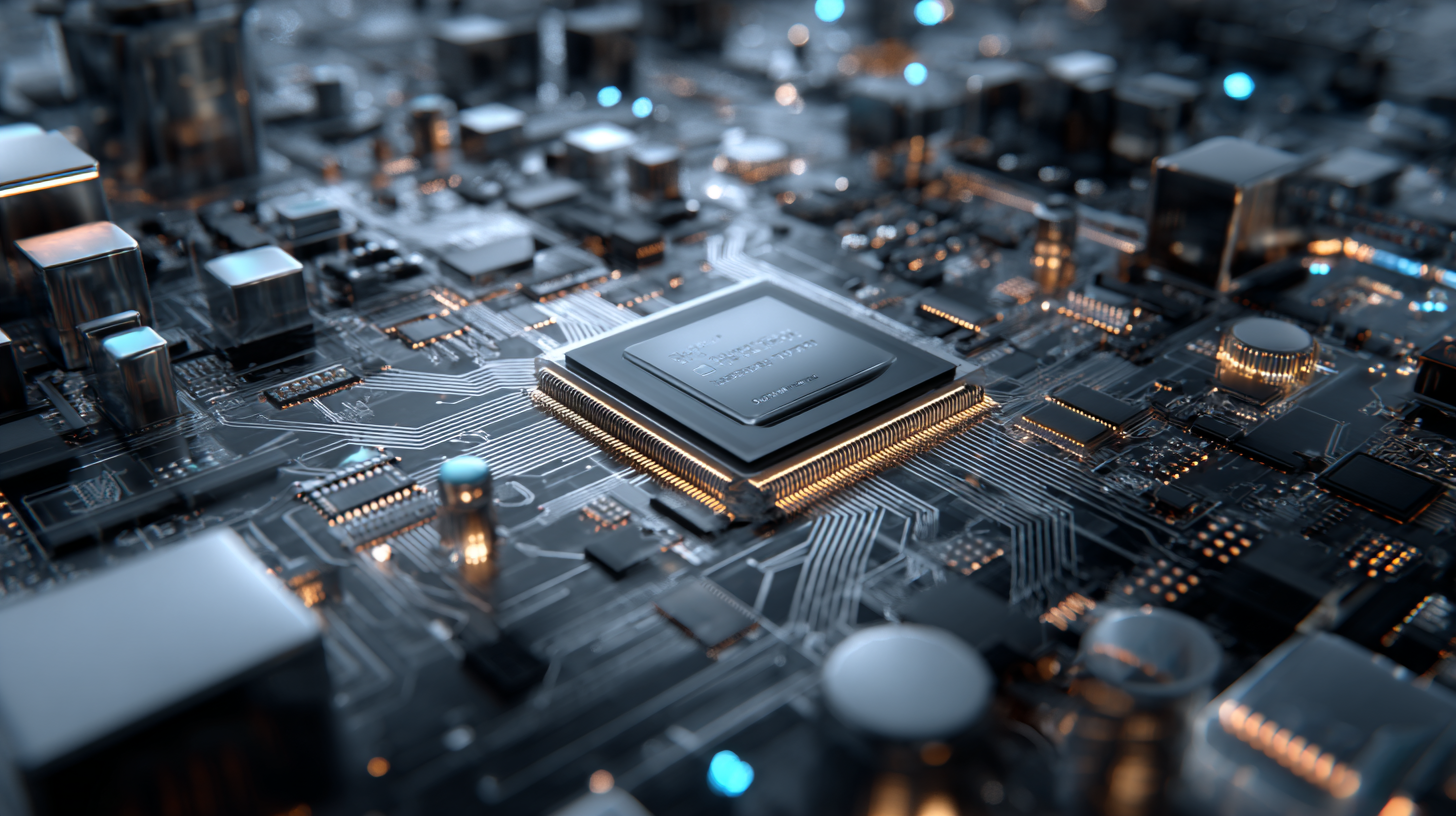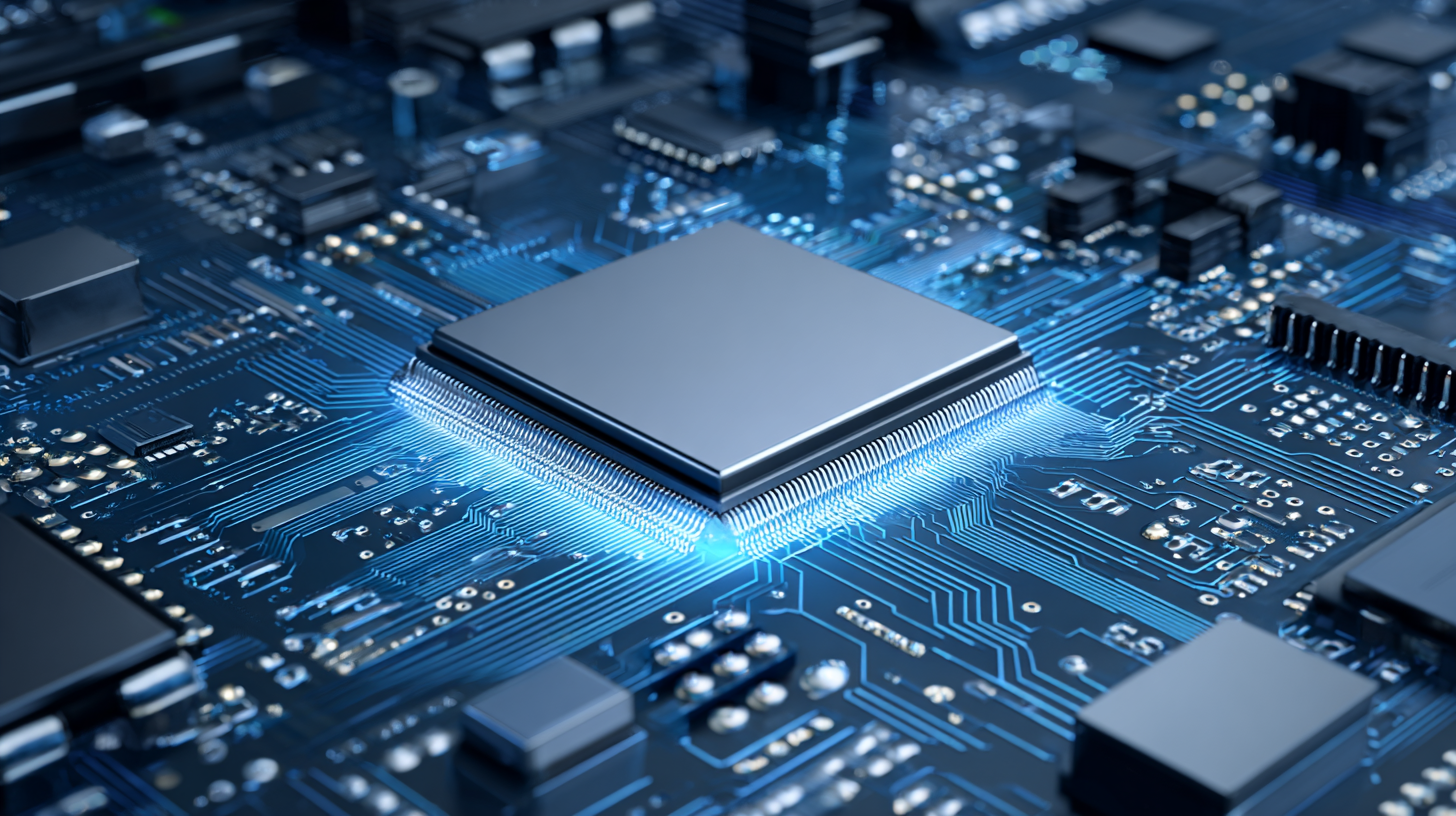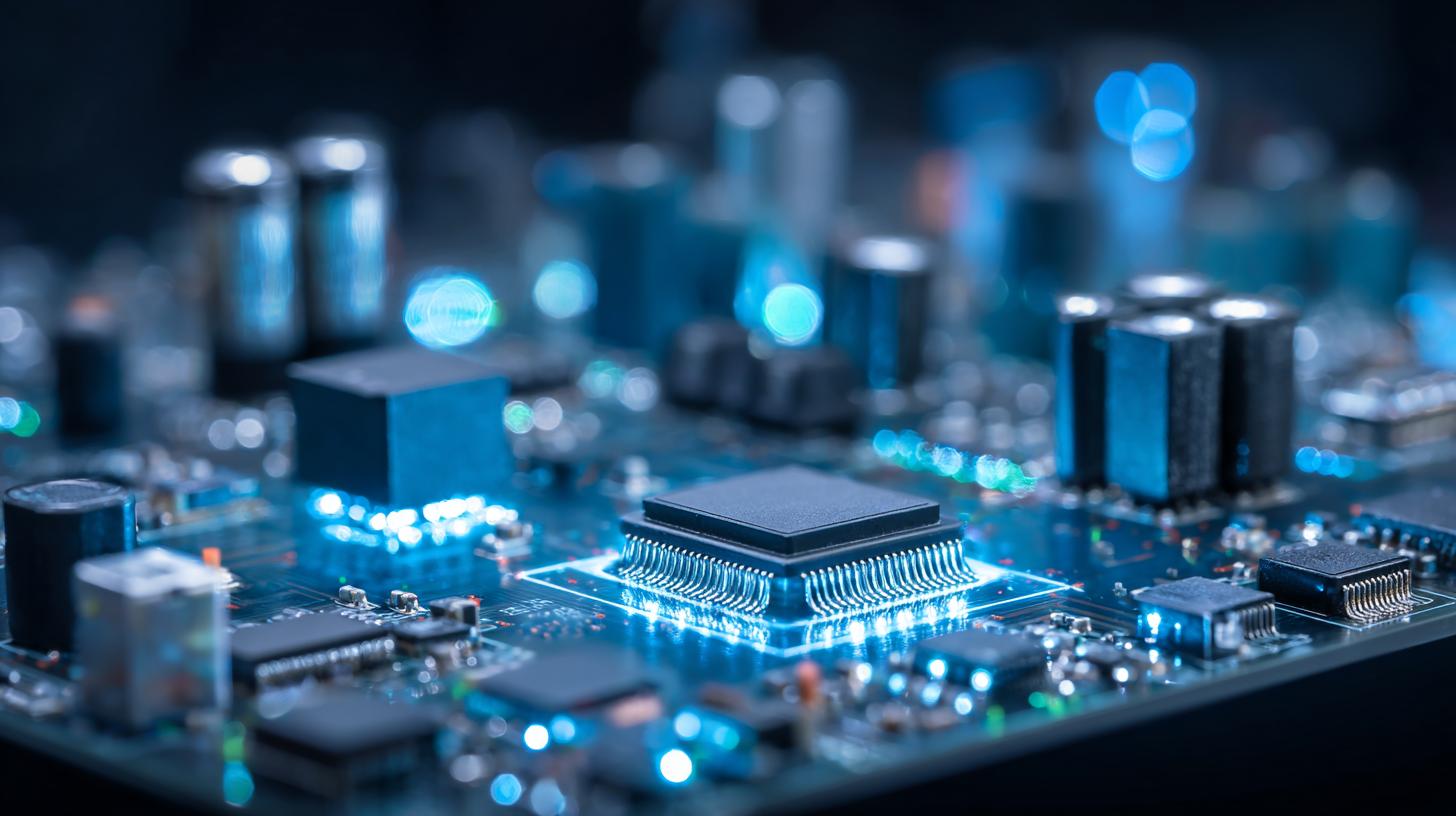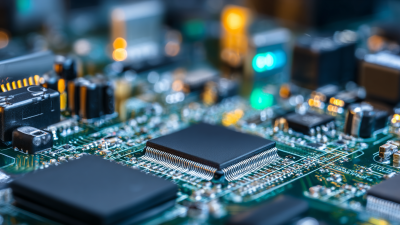In the rapidly evolving landscape of electronics, the significance of advanced PCBA manufacturing techniques cannot be overstated. As industries strive to produce innovative and efficient electronic devices, understanding the latest trends and insights in PCBA manufacturing becomes crucial for success. This article delves into the multifaceted world of printed circuit board assembly (PCBA), exploring state-of-the-art methodologies that enhance production efficiency and product reliability.
 By harnessing emerging technologies and integrating digital solutions, manufacturers can unlock new possibilities for design and functionality in their offerings. Furthermore, we will provide valuable tips to help both seasoned professionals and newcomers navigate the complexities of the PCBA manufacturing process, ensuring they stay competitive in a challenging market. Join us as we uncover essential strategies and insights that will shape the future of electronics manufacturing.
By harnessing emerging technologies and integrating digital solutions, manufacturers can unlock new possibilities for design and functionality in their offerings. Furthermore, we will provide valuable tips to help both seasoned professionals and newcomers navigate the complexities of the PCBA manufacturing process, ensuring they stay competitive in a challenging market. Join us as we uncover essential strategies and insights that will shape the future of electronics manufacturing.
In 2023 and beyond, the landscape of PCBA (Printed Circuit Board Assembly) manufacturing is witnessing significant transformations driven by technological advancements and evolving market demands. According to a report by MarketsandMarkets, the global PCBA market is projected to reach $88.5 billion by 2025, growing at a CAGR of 4.6%. This growth indicates a robust demand for innovative manufacturing techniques that enhance efficiency and reduce costs, which are crucial for staying competitive in the electronics sector.
One of the key trends shaping the future of PCBA manufacturing is the increasing adoption of automation and Industry 4.0 solutions. A study by IPC indicates that over 60% of electronics manufacturers are integrating smart technologies, such as IoT and AI, into their production processes. These innovations not only streamline operations but also enhance quality control and predictive maintenance, ultimately leading to a more sustainable production environment. This shift towards automation is crucial as the industry grapples with labor shortages and the need for rapid prototyping and shorter time-to-market for new products.
This chart illustrates the key trends impacting PCBA manufacturing in 2023, including advancements in automation, sustainable practices, and the adoption of AI technologies.
The rise of artificial intelligence (AI) and automation is revolutionizing the landscape of Printed Circuit Board Assembly (PCBA) manufacturing. These emerging technologies are significantly enhancing the efficiency and quality of production processes, leading to faster turnaround times and reduced operational costs. AI algorithms can analyze vast amounts of data from various production stages, allowing manufacturers to identify bottlenecks and optimize workflows. This data-driven approach empowers companies to make informed decisions and predict potential issues before they escalate.

Moreover, automation in PCBA brings precision and consistency to assembly tasks, minimizing human error and variability. Advanced robotic systems can perform intricate soldering and placement tasks with exceptional accuracy, catering to the demand for miniaturization and complexity in modern electronics. As AI and automation technologies evolve, their integration into PCBA processes will continue to shape the industry, pushing the boundaries of what is technologically possible and ensuring products meet the highest quality standards. This transformation not only benefits manufacturers but also provides end consumers with reliable and sophisticated electronic devices.
As the electronics industry evolves, the demand for sustainable practices in PCB assembly and material sourcing has become paramount. According to a recent report by the IPC (Institute for Printed Circuits), around 60% of manufacturers are now prioritizing eco-friendly processes in their operations. This shift not only reduces environmental impact but also aligns with consumer preferences for greener products. The integration of sustainable materials, such as biodegradable substrates and non-toxic solder, plays a crucial role in minimizing the carbon footprint of electronics manufacturing.
Moreover, the sourcing of materials has been identified as a critical factor in promoting sustainability. The Global Sustainability Initiative highlights that using recycled and responsibly sourced materials can cut down resource depletion by up to 30%. With growing legislative pressures and consumer awareness, companies are increasingly investing in supply chain transparency and ethical sourcing practices. By leveraging innovative technologies such as AI and machine learning, organizations can optimize material use and improve the overall efficiency of PCB assembly processes, leading to a more sustainable electronics industry.
| Dimension | Details |
|---|---|
| Eco-friendly Materials | Use of biodegradable substrates and lead-free solder. |
| Energy-efficient Manufacturing | Techniques to reduce energy consumption during the PCB assembly process. |
| Waste Reduction Practices | Implementing recycling and reuse strategies for materials. |
| Supply Chain Transparency | Sourcing materials from suppliers who comply with ethical standards. |
| Lifecycle Analysis | Assessing the environmental impact of PCB products throughout their lifecycle. |
| Innovative Technologies | Integration of IoT and automation to optimize production processes. |
In today's rapidly evolving electronics sector, cost management strategies have become paramount, particularly for PCBA (Printed Circuit Board Assembly) manufacturing. Lean manufacturing principles play a crucial role in optimizing production efficiency and reducing costs.
 By streamlining processes and minimizing waste, manufacturers can achieve significant economies of scale. This is particularly important in an environment where consumer demand is shifting towards smart products, requiring manufacturers to be agile and cost-effective in their production methods.
By streamlining processes and minimizing waste, manufacturers can achieve significant economies of scale. This is particularly important in an environment where consumer demand is shifting towards smart products, requiring manufacturers to be agile and cost-effective in their production methods.
However, integrating lean methodologies isn't without its challenges. The adoption of artificial intelligence in quality management introduces complexities that may clash with traditional operational cultures. As companies strive to enhance their manufacturing processes, the need for a skilled workforce capable of navigating these technological shifts becomes increasingly apparent.
Future supply chain leaders must focus on bridging the knowledge gaps in areas such as data analytics and AI integration to ensure their organizations remain competitive. By leveraging both innovative manufacturing techniques and effective cost management strategies, the electronics industry can unlock a prosperous future.
The global Printed Circuit Board Assembly (PCBA) market is poised for significant growth, projected to reach USD 89.2 billion by 2025, expanding at a CAGR of 7.5% from 2020. This growth is driven by the increasing demand for electronic devices in sectors such as automotive, telecommunications, and consumer electronics. Notably, the automotive sector is anticipated to account for a sizable share of the market, fueled by advancements in electric vehicles and the incorporation of sophisticated electronics.
Strategic opportunities for innovators in the PCBA landscape are abundant. The rise of Industry 4.0 and the Internet of Things (IoT) is pushing manufacturers to adopt smart technologies and automation, enhancing efficiency and reducing production costs. A recent market analysis pointed out that companies embracing advanced manufacturing techniques, like robotic assembly and AI-driven quality control, can significantly improve their competitive edge. Furthermore, as sustainability becomes a priority, PCB manufacturers that invest in environmentally friendly processes can tap into growing consumer demand for eco-conscious products, thereby driving future growth in the PCBA industry.





| Cookie | Duration | Description |
|---|---|---|
| cookielawinfo-checkbox-analytics | 11 months | This cookie is set by GDPR Cookie Consent plugin. The cookie is used to store the user consent for the cookies in the category "Analytics". |
| cookielawinfo-checkbox-functional | 11 months | The cookie is set by GDPR cookie consent to record the user consent for the cookies in the category "Functional". |
| cookielawinfo-checkbox-necessary | 11 months | This cookie is set by GDPR Cookie Consent plugin. The cookies is used to store the user consent for the cookies in the category "Necessary". |
| cookielawinfo-checkbox-others | 11 months | This cookie is set by GDPR Cookie Consent plugin. The cookie is used to store the user consent for the cookies in the category "Other. |
| cookielawinfo-checkbox-performance | 11 months | This cookie is set by GDPR Cookie Consent plugin. The cookie is used to store the user consent for the cookies in the category "Performance". |
| viewed_cookie_policy | 11 months | The cookie is set by the GDPR Cookie Consent plugin and is used to store whether or not user has consented to the use of cookies. It does not store any personal data. |